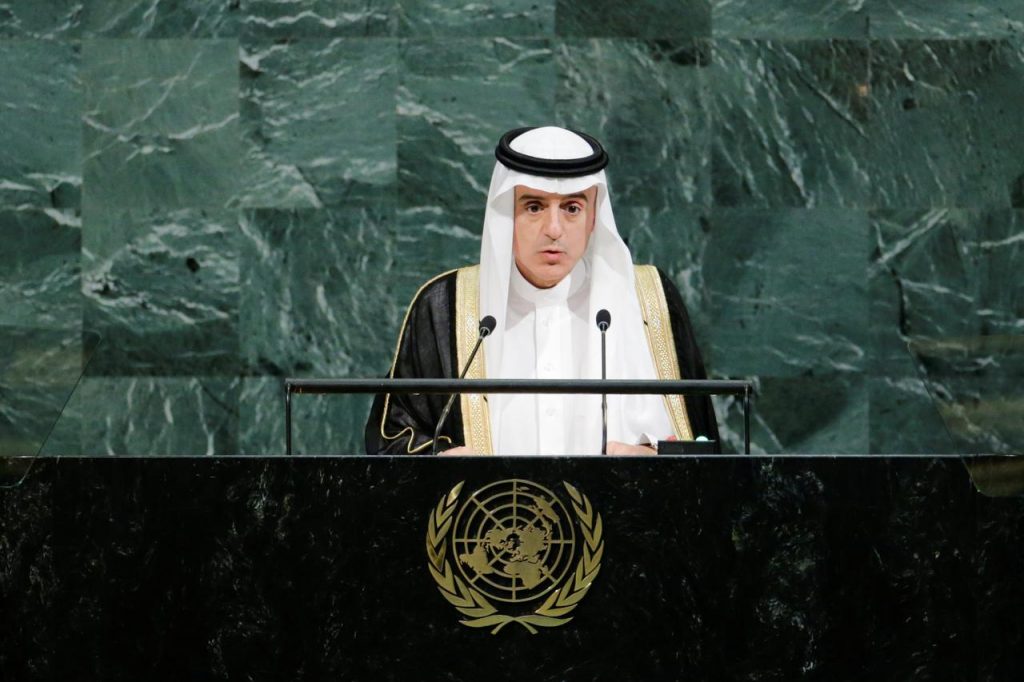
- ARAB NEWS
- 24 Apr 2024

In today’s world, an essential part of international politics is handled through multilateral channels, often from the manors of international organizations such as the UN. Multilaterals empirically document the creation and contestation of these diplomatic channels, otherwise referred to as multilateral diplomacy, which exists primarily depending on world structure or regional distribution.
The broad scope of multilateral diplomacy is evident in the number of active international political organizations. This growing prevalence of multilateral diplomacy generates notable forms of social lamination organized around a contest for diplomatic competence.
That being said, respect for national sovereignty is a core principle in the UN Charter and must be respected at all costs. Thus, cooperation or collective effort cannot be confused with interference in internal national affairs.
It would be simplistic to say that the world would be a better place if diplomatic cooperation was merely guided by consensus. Indeed, the current move toward multilateralism leaves much to hope for and desire. Some analysts argue that the most powerful of the international organizations promote economic and political cooperation to support globalization through diplomacy.
While international organizations are the tools needed to strengthen comprehensive management, by their very nature these can be dominated by power differentials across members. We argue that it is enough to appreciate joint efforts without facing up honestly to the concerns that make some states feel uniquely weak, since it is those concerns that drive them to take unilateral action.
Despite these inequities in power, state representatives posted to international organizations take advantage of the opportunities and constraints of a given situation and compete for rank through the performance of practical knowhow. The concept explains this process by looking at how an essential set of multilateral practices lend themselves to use order dynamics, from intelligence to reporting through negotiating.
To achieve global governance through multilateral diplomacy, therefore, reforms are necessary to strengthen international organizational settings.
Saudi Arabia believes in stronger multilateralism to tackle persistent global challenges such as poverty and inequality eradication, arms proliferation, geopolitical tensions, and terrorism. Such challenges require collaboration and cooperation among member states and other actors in a given circumstance.
Theoretically, given the view that the reality of some states doubts the role of the UN, the realist maintains that other countries, if reasonable, are virtually constrained to base their foreign policy on coexistence and international cooperation. As realists see it, Saudi Arabia trusts in a collective effort to address the steep challenges and disasters we are confronted with in the world.
The idealist, on the other hand, states that such an approach impacts hugely on the failure of joint actions and the credibility of the UN. They fault the realist for underestimating the role of cooperation, international diplomacy, and collective efforts. To them, the realist overemphasizes power and self-interest.
The only way forward in regulating collective efforts is cooperation between states, governing these challenges as a matter of state and narrow self-interest. This can only be done through multilateralism and cooperation between countries and the UN.
Saudi Arabia, as an active player in the world, takes multilateralism seriously. It shows that in its role in international diplomacy and how it continually pushes other nation states in tackling the persistent challenges we face today.
Saudi Arabia, as an active player in the world, takes multilateralism seriously.
Dr. Khaled Manzlawiy
Through multilateral diplomacy, Saudi Arabia is proud of its achievement in preventing conflict in the Horn of Africa, supporting the global war on terrorism, and upholding the Sustainable Development Goals as a result of its international duties.
However, the approach of global governance still faces significant challenges, such as climate change, internally displaced people, and geopolitical aggression. The type and scale of the challenges we are confronted with require us to work carefully toward the reform of the UN system. This challenges us to enhance the effectiveness of the Security Council and revitalize the role of the General Assembly and all related bodies of the UN. Saudi Arabia stands firm in calling for a new impetus to enable the UN to cope with the hopes of the 21st century.